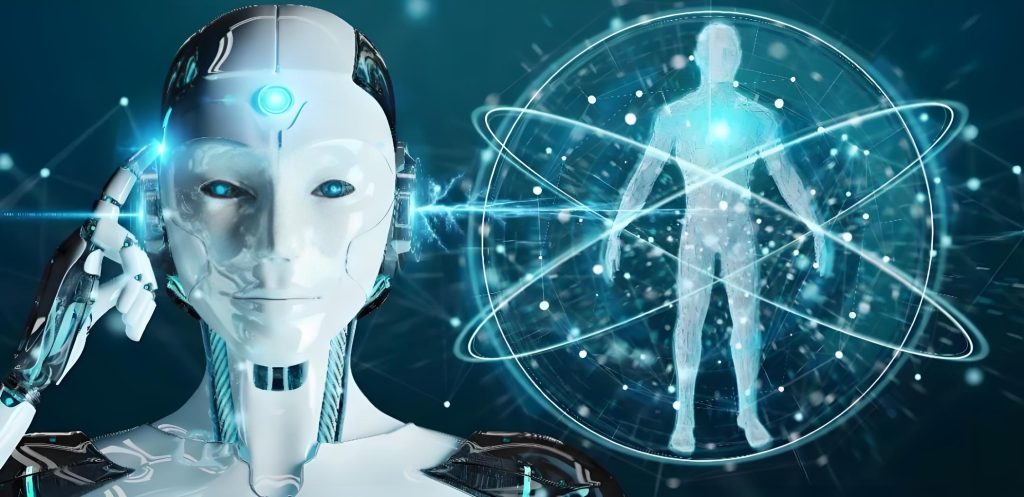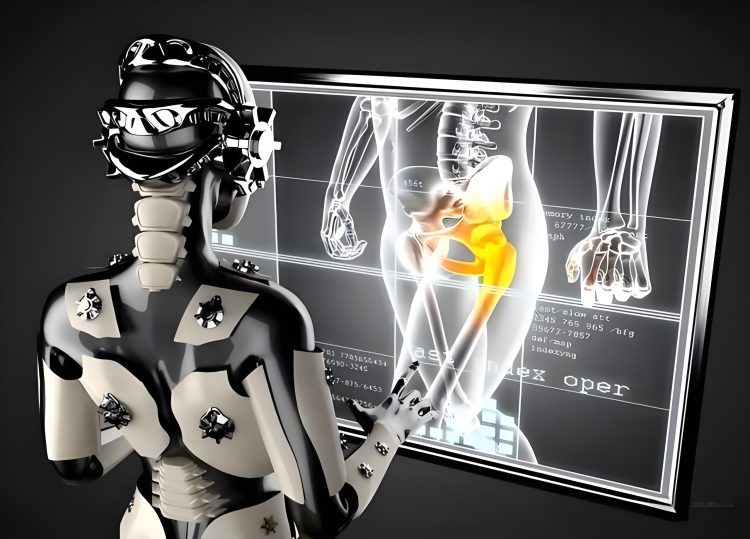Amidst the relentless progression of medical science, artificial intelligence (AI) emerges as a transformative force, redefining the boundaries of diagnosis, treatment, and disease prevention. The advent of AI-powered intelligent diagnosis marks a seminal moment in the annals of healthcare, heralding an era of unprecedented accuracy, swiftness, and personalization in patient care.

Elevating Diagnostic Precision to New Heights
Gone are the days when diagnoses solely relied on the expertise and intuition of seasoned medical professionals. AI, with its unmatched ability to process colossal amounts of data in real-time and discern patterns imperceptible to human eyes, has revolutionized diagnostic precision. By meticulously scrutinizing medical images, from intricate X-rays to high-resolution CT scans and MRIs, AI algorithms can detect the slightest anomalies, enabling earlier and more accurate diagnoses. This not only bolsters patient outcomes but also reduces the likelihood of misdiagnoses, thereby mitigating unnecessary treatments and their associated risks.
Accelerating the Path to Diagnosis
In the realm of healthcare, where every second counts, AI-powered diagnostic tools have significantly expedited the diagnostic process. By automating routine tasks and streamlining data analysis, AI frees up valuable time for medical professionals to focus on patient care. This translates into faster turnaround times for test results, enabling prompt treatment initiation and improving patient satisfaction. Moreover, the real-time insights provided by AI can help clinicians make more informed decisions, ultimately leading to better health outcomes.
Personalizing Medicine to the Core
The future of healthcare is intricately intertwined with the concept of personalized medicine, where treatments are tailored to each individual’s unique biology, lifestyle, and medical history. AI plays a pivotal role in this endeavor, enabling the deep analysis of complex genetic data and other biomarkers. By uncovering hidden correlations and predicting disease risks, AI-driven algorithms empower doctors to devise personalized treatment plans that are more effective and less likely to cause adverse reactions. This level of customization ensures that patients receive the most appropriate care, tailored to their specific needs and circumstances.
Empowering Patients and Enhancing Healthcare Provider Capabilities
AI-powered intelligent diagnosis not only benefits healthcare providers but also empowers patients by granting them unprecedented access to their health information. Through AI-driven health apps and wearable devices, patients can monitor their vital signs, track their health progress, and even receive proactive notifications about potential health issues. This level of engagement fosters a stronger sense of ownership and responsibility over one’s health, encouraging patients to take proactive steps towards better health outcomes. Meanwhile, healthcare providers gain invaluable insights into population health trends, enabling them to optimize resource allocation, refine treatment protocols, and enhance overall care delivery.
Navigating Ethical and Regulatory Challenges with Wisdom and Collaboration
As AI-powered intelligent diagnosis gains traction, it is imperative to address the ethical and regulatory challenges that accompany this groundbreaking technology. Ensuring data privacy, maintaining transparency in AI decision-making processes, and ensuring equitable access to AI-driven healthcare services are paramount to fostering trust and ensuring positive societal outcomes. To this end, stakeholders across the healthcare ecosystem must collaborate to develop robust ethical frameworks and regulatory guidelines that balance innovation with responsibility. By embracing an inclusive and collaborative approach, we can harness the full potential of AI while mitigating its potential risks, ultimately creating a healthier, more equitable world for all.











































Discussion about this post